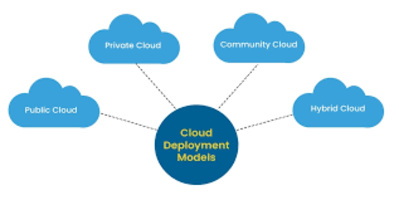Securing your business email is paramount in today’s digital landscape, where cyber threats loom. In our upcoming blog series, we delve into the crucial topic of email security, offering essential tips tailored specifically for small businesses. From phishing to data breaches, we’ll equip you with the knowledge and tools to fortify your email defenses and protect your business from cyber-attacks. Join us as we navigate the complexities of email security and empower your business to stay safe and secure in an ever-evolving online world.
What Are Email Security Risks?
Email security risks pose a significant threat to businesses of all sizes. They encompass a range of malicious activities that can compromise sensitive data, disrupt operations, and damage reputations. Phishing attacks, one of the most prevalent threats, involve fraudulent emails to trick recipients into divulging personal information, credentials, or financial details. These emails often mimic legitimate sources, making them difficult to identify and increasing the likelihood of unsuspecting users falling victim to scams.
Beyond phishing, email security risks also include malware attachments and links that, when clicked, can infect systems with viruses, ransomware, or other malicious software. Spoofing attacks involve forging email addresses to impersonate trusted senders, allowing attackers to deceive recipients and bypass traditional security measures.
Email interception, where unauthorized parties intercept and eavesdrop on email communications, poses another serious risk, particularly for businesses transmitting sensitive information. Additionally, email account takeover attacks target compromised accounts, enabling cybercriminals to exploit them for further malicious activities.
Furthermore, data breaches resulting from email security lapses can have severe consequences, including financial losses, legal liabilities, and damage to customer trust and brand reputation. Therefore, understanding and mitigating email security risks is essential for safeguarding business communications and sensitive information from unauthorized access and exploitation.
Best Practices for Email Security
Thanks to the advancements in technology, there have been numerous mechanisms and functions to safeguard your electronic mail. These measures are suitable for individual use and large-scale enterprises for their digital protection.
Implement Robust Password Policies.
Strong password policies significantly enhance email security for small businesses by ensuring user accounts are protected against unauthorized access. Solid and complex passwords reduce the risk of brute force attacks and password guessing, making it harder for cybercriminals to compromise email accounts. Regularly updating passwords and enforcing unique credentials for different accounts further mitigate the risk of breaches.
Additionally, encouraging multi-factor authentication (MFA) adds an extra layer of security, ensuring that even if a password is compromised, unauthorized access is still prevented. This proactive approach helps safeguard sensitive business information and maintains the integrity of communications.
Use Encryption For Sensitive Information.
Using encryption for sensitive information in emails significantly enhances security for small businesses. Encryption transforms readable data into an unreadable format, ensuring that the content remains protected from unauthorized access even if emails are intercepted. This safeguards sensitive information such as financial details, personal data, and confidential business communications from cyber threats and breaches.
Additionally, encryption helps businesses comply with data protection regulations and build trust with clients by demonstrating a commitment to maintaining the highest security standards. Overall, email encryption is vital in protecting sensitive information and maintaining business integrity.
Educate Employees on Phishing Attacks
Educating employees on phishing attacks is crucial for enhancing email security in small businesses. Businesses can significantly reduce the risk of successful phishing attempts by training staff to recognize and respond to suspicious emails. Knowledgeable employees are better equipped to identify red flags, such as unfamiliar senders, urgent requests, and dubious links, preventing data breaches and unauthorized access.
This proactive approach protects sensitive information and fosters a security-conscious culture, empowering employees to be the first line of defense against cyber threats, thereby enhancing the overall resilience of the business’s cybersecurity infrastructure.
Regularly Update Antivirus
Regularly updating antivirus software is crucial for email security in small businesses. Frequent updates ensure the antivirus program can recognize and defend against the latest threats, including new malware, phishing attempts, and other cyberattacks targeting email systems.
Keeping antivirus software current enhances its ability to detect and block harmful attachments and links, reducing the risk of infections and data breaches. By maintaining up-to-date antivirus protection, small businesses can safeguard sensitive information, maintain secure communications, and protect their reputation, ensuring a robust defense against evolving email-based threats.
Avoid the use of business email on public wifi.
Avoiding the use of business email on public Wi-Fi is crucial for email security in small businesses. Public Wi-Fi networks are often unsecured, making them prime targets for cybercriminals who can intercept and access sensitive information transmitted over these networks.
By refraining from accessing business emails on public Wi-Fi, businesses can prevent unauthorized access, reduce the risk of data breaches, and protect confidential information from being exposed. This practice helps maintain the integrity and security of business communications, ensuring that sensitive data remains protected from cyber threats in unsecured environments.
Improve endpoint security
By securing endpoints such as computers and mobile devices, businesses can prevent unauthorized access and malware infections that often originate from email threats. Advanced endpoint security solutions, including antivirus software, firewalls, and endpoint detection and response (EDR) systems, can detect and mitigate phishing attacks, malware, and other email-based threats.
This proactive approach protects sensitive data and business communications and reduces the risk of costly data breaches and downtime, ensuring the overall security and continuity of small business operations.
Enable multi-factor authentication
Enabling multi-factor authentication (MFA) significantly enhances email security for small businesses by adding an extra layer of protection beyond just passwords. MFA requires users to verify their identity through multiple methods, such as a password and a temporary code sent to their mobile device.
This reduces the risk of unauthorized access, even if passwords are compromised. By implementing MFA, small businesses can safeguard sensitive information, prevent data breaches, and protect against phishing and account takeover attacks, ensuring a more secure and resilient email communication system.
Choosing the Right Email Security Solutions
Choosing the right email security solution is crucial for protecting your business from cyber threats. Look for solutions that offer comprehensive protection, including spam filtering, phishing detection, malware prevention, and encryption.
Consider scalability, ease of integration with existing systems, and user-friendliness. Opt for solutions with multi-factor authentication and robust support services. Investing in a reliable email security solution ensures your business communications remain secure, protecting sensitive data and maintaining operational integrity.
Secure Your Business with the ACT
Secure your business with top-tier email security services from ACT. Our advanced solutions protect against phishing, malware, and data breaches, ensuring your communications remain safe. With robust multi-factor authentication and real-time threat detection, we keep your sensitive information secure. Trust ACT for comprehensive email security- contact now!
Read more – Cloud Email Backup
FAQ's
Phishing attacks compromise businesses through email by tricking users into divulging sensitive information, such as login credentials or financial details, through deceptive emails posing as trustworthy sources.
Weak email security can lead to data breaches, financial losses, reputational damage, and business legal liabilities.
A good security practice for email is regularly updating and strengthening passwords to prevent unauthorized access.
We can ensure email safety through robust encryption, regular employee training on phishing awareness, and implementing multi-factor authentication protocols.
Ensure email security through robust measures like using strong passwords, enabling multi-factor authentication, and being cautious of phishing attempts.





